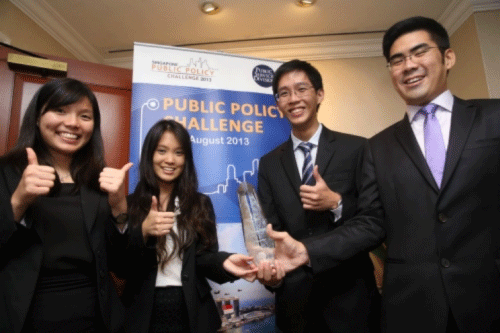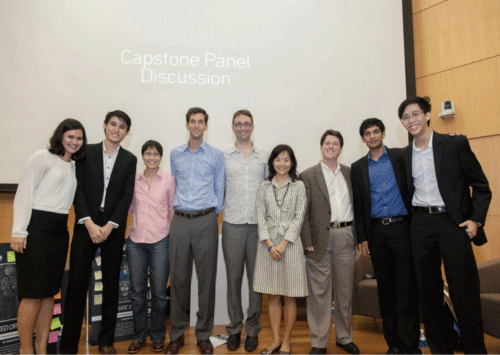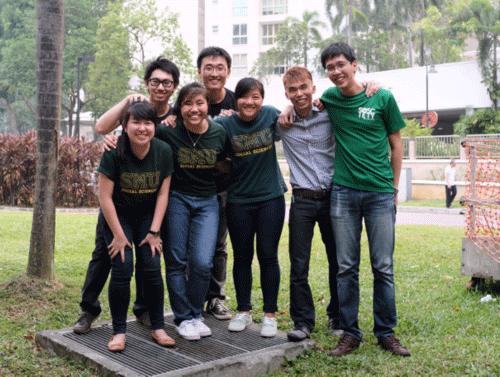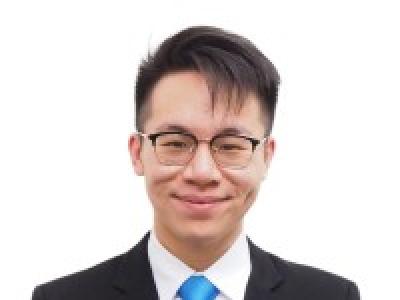
The field of social sciences is, quite literally, the application of scientific methods to understand various issues present within society. Would it surprise you to know that even as a social sciences undergraduate, you may already be able to contribute meaningfully through research and other contributions in the area of public policy? Let our final-year student Jonathan Tan tell you about these and other opportunities that have affirmed his decision to study in the SMU School of Social Sciences (SOSS).
1. I’ve had great opportunities to work with and learn from faculty members.
During my time at SMU, I’ve found that our professors are very open to working with undergraduates on research projects. They’re also available to mentor us closely. From what I know from my peers, these opportunities are uncommon at the undergraduate level in other universities: usually they’re only available to postgraduates.
Personally, I’ve had opportunities to work with Assistant Professor Yang Hwajin on a number of research projects. We co-authored a research paper together and are currently collaborating with A*STAR to investigate the cognitive benefits of bilingualism in infants. Prof Yang has been an excellent research mentor, and a strong personal mentor as well. Her constant encouragement and support have been invaluable to me throughout my journey at SMU.
2. I’ve experienced strong support for student-led initiatives.
In my experience, the Dean’s office and faculty members fully support student-led initiatives, as they believe in maximising every student’s potential. Obtaining their support is as simple as coming up with a short, well-supported proposal.

At the 2013 SMU Social Sciences Conference.
For instance, a group of my seniors came up with an idea for a conference that would introduce pre-university students to the social sciences. I was privileged to be involved in the sub-committee, and to subsequently take over the second iteration of this conference. We received tremendous support from the school to carry it out, and so far we’ve reached out to 450-500 students over three annual conferences. Some of our keynote speakers included our former President of Singapore, Dr S. R. Nathan and Minister for Social and Family Development, Mr Chan Chun Sing.
3. I’ve had life lessons that extend beyond the classroom.
The traditional mode of teaching in the social sciences seems to involve the regurgitation of well-established theories within a lecture/tutorial setting, with assessment through essay writing. This approach trains a student to be strong at the theoretical level, but I think it provides little room for understanding how to apply the theories to real-world social problems.

Jonathan and team, after a full day of interviewing residents of rental flats for their Public Policy Taskforce.
At the SMU School of Social Sciences, we’re constantly challenged to apply our knowledge to real-world problems, and to find ways to give back to our community. For example, in one of my modules last semester – Public Policy Taskforce on Single-parent-headed Households in Singapore – we took a 360-degree approach towards studying an important social issue. We designed our own research instrument and conducted in-depth interviews with both leading experts in Singapore and our target group of low-income single-parent-headed households. This culminated in a public engagement forum with various government officials, Voluntary Welfare Organisations (VWOs), and research associates, and also a public policy report.
4. I’m part of a close-knit community of students.
I dare to argue that the School of Social Sciences houses the tightest-knit community at SMU. On nearly any given day, you’ll see us – freshmen and seniors alike – hanging out along the 4th floor corridors of our school building. And it’s not because we’re clique-ish: I believe our sense of community comes from our shared identity and passion for addressing social issues. On a personal note, I’ve found that it’s nearly impossible to graduate without getting to know at least half the students in your cohort. So inclusive are we, that our professors have been known to join in our casual gatherings and events as well!
5. I’ve picked up invaluable soft and hard skills.
My time in SOSS has equipped me for life after university through a variety of learning opportunities. For instance, I learnt how to work with vulnerable, high-risk populations, and to understand the ethical issues involved. In a research capacity, I was exposed to various training opportunities in both academic writing and presentations. Last semester we had a mock conference poster presentation during one of my psychology modules last semester, where I presented to faculty and members of the public.

The winning team at the Singapore Public Policy Challenge 2013. (Photo credit: Public Service Division)
In addition, the rigorous training in analytical thinking and presentation skills paid off at the prestigious Singapore Public Policy Challenge 2013, where I was part of a team that took first place for SMU. Our team deployed our classroom skills and knowledge to effectively tackle a simulated national budget planning exercise, and to propose a social policy recommendation to a panel of senior government leaders. Besides this rare exposure opportunity, I’ve also taken on intensive internships within various government research institutes.
All these challenges, with their steep but rewarding learning curves, have made me confident that I’m ready to tackle life after university.


